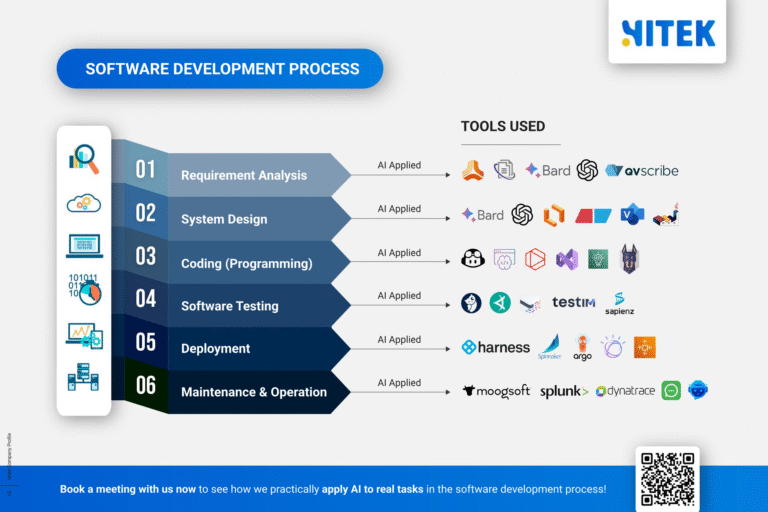In today’s digital-first landscape, web applications have become the backbone of how we interact with technology. From online banking to e-commerce platforms, web apps are everywhere, seamlessly integrating into our daily lives. But what exactly is web app development, and why is it so critical for businesses in Australia? Let’s break it down.
Contents
ToggleWhat Is Web App Development?
Web app development is creating software applications that run on web browsers. Unlike traditional desktop applications, web apps don’t require installation and can be accessed from any device with an internet connection. Think of tools like Gmail, Trello, or Canva—these are all web apps designed to make life easier, faster, and more efficient.
For businesses in Australia, investing in web app development is no longer a luxury; it’s a necessity. With over 90% of Australians using the internet daily, having a robust web app can help companies reach wider audiences, streamline operations, and deliver exceptional user experiences.
How Web Apps Differ from Websites
At first glance, web apps and websites might seem similar, but they serve different purposes. Websites are typically informational, offering static content like blogs, news, or company details. On the other hand, web apps are interactive and dynamic, allowing users to perform specific tasks.
For example, a website might showcase a restaurant’s menu and location, while a web app could let customers place orders, make reservations, or track deliveries. This interactivity makes web apps powerful for businesses looking to engage their audience.
Key Components of Web App Development
Building a web app involves several critical components:
- Front-End Development: This is the user-facing side of the app, where design and functionality come together. HTML, CSS, and JavaScript are commonly used to create an intuitive and visually appealing interface.
- Back-End Development: The back end handles the app’s logic, database interactions, and server management. Popular programming languages for back-end development include Python, Ruby, and PHP.
- Database Management: Web apps rely on databases to store and retrieve data. Solutions like MySQL, MongoDB, and PostgreSQL are widely used.
- APIs (Application Programming Interfaces) enable web apps to communicate with other services, such as payment gateways or social media platforms.
Why Web App Development Matters for Australian Businesses
Australia’s digital economy is booming, with businesses across industries leveraging web apps to stay competitive. Here’s why web app development is a game-changer:
- Enhanced User Experience: A well-designed web app can provide a seamless, responsive experience across devices, from desktops to smartphones.
- Cost-Effective: Web apps eliminate the need for multiple platform-specific versions, reducing development and maintenance costs.
- Scalability: As your business grows, your web app can quickly scale to accommodate more users and features.
- Accessibility: With cloud-based hosting, web apps can be accessed anytime, anywhere, making them ideal for Australia’s geographically dispersed population.
For instance, Australian companies like Canva and Atlassian have built global empires by offering innovative web-based solutions.
The Web App Development Process
Creating a web app involves a structured process to meet user needs and business goals. Here’s a step-by-step overview:
- Planning and Research: Define the app’s purpose, target audience, and key features.
- Design: Create wireframes and prototypes to visualize the app’s layout and functionality.
- Development: Build the front-end and back-end components, integrating APIs and databases.
- Testing: Conduct rigorous testing to identify and fix bugs or usability issues.
- Deployment: Launch the app and monitor its performance.
- Maintenance: Regularly update the app to fix bugs, add features, and improve security.
Popular Web App Development Frameworks in Australia
Choosing the proper framework is crucial for efficient development. Here are some popular options:
| Framework | Language | Best For |
|---|---|---|
| React | JavaScript | Dynamic, high-performance apps |
| Angular | TypeScript | Enterprise-level applications |
| Django | Python | Rapid development and scalability |
| Ruby on Rails | Ruby | Startups and small businesses |
Challenges in Web App Development
While web apps offer numerous benefits, they also come with challenges:
- Security: Protecting user data is paramount, especially with Australia’s strict Privacy Act.
- Performance: Ensuring fast load times and smooth functionality is essential for user retention.
- Cross-Browser Compatibility: Web apps must work seamlessly across different browsers and devices.
The Future of Web App Development in Australia
As technology evolves, so does web app development. Trends like progressive web apps (PWAs), artificial intelligence, and voice search integration are shaping the industry’s future. For Australian businesses, staying ahead of these trends can mean the difference between leading the market and falling behind.
Ready to Build Your Web App?
If you’re a business owner in Australia looking to harness the power of web apps, now is the time to act. Partnering with a skilled development team can help you create a solution that drives growth, enhances customer satisfaction, and sets you apart.
Do you have questions or need expert advice? Contact us today to start your web app development journey.
By understanding the ins and outs of web app development, Australian businesses can unlock new opportunities and thrive in the digital age. Whether a startup or an established enterprise, a well-crafted web app could be your ticket to success.









